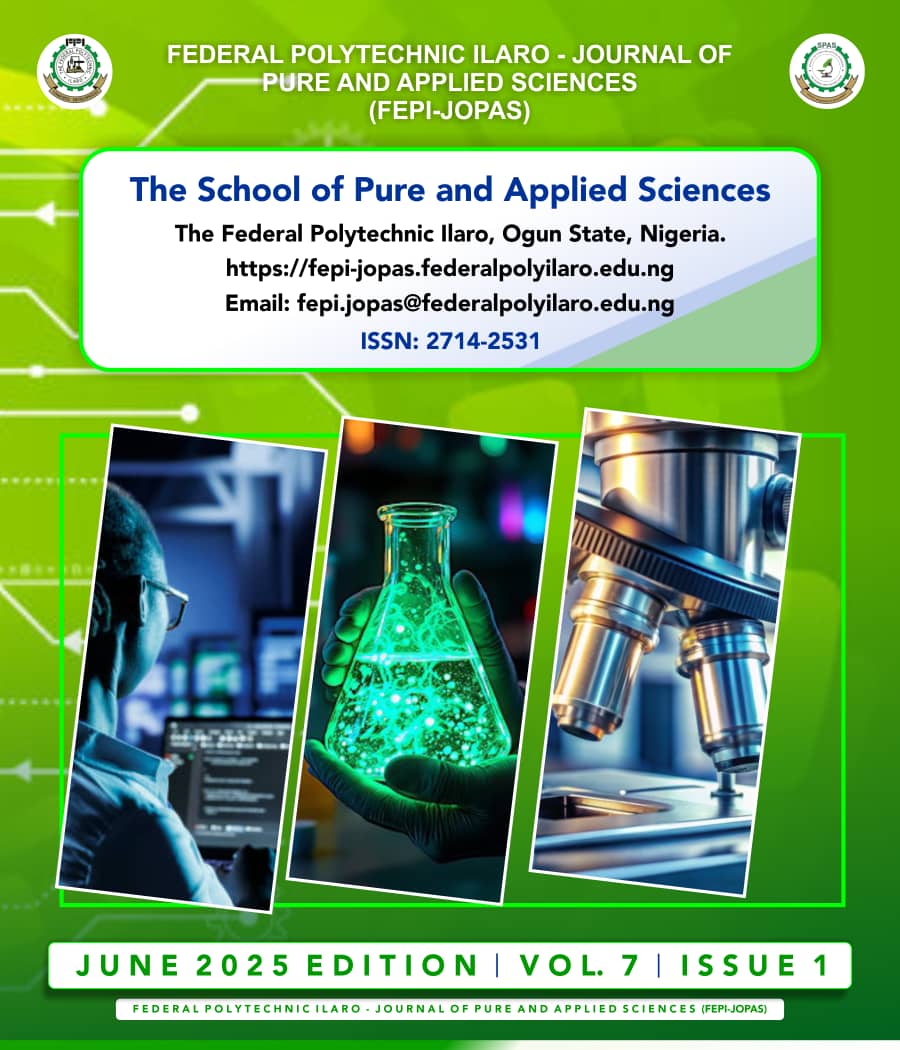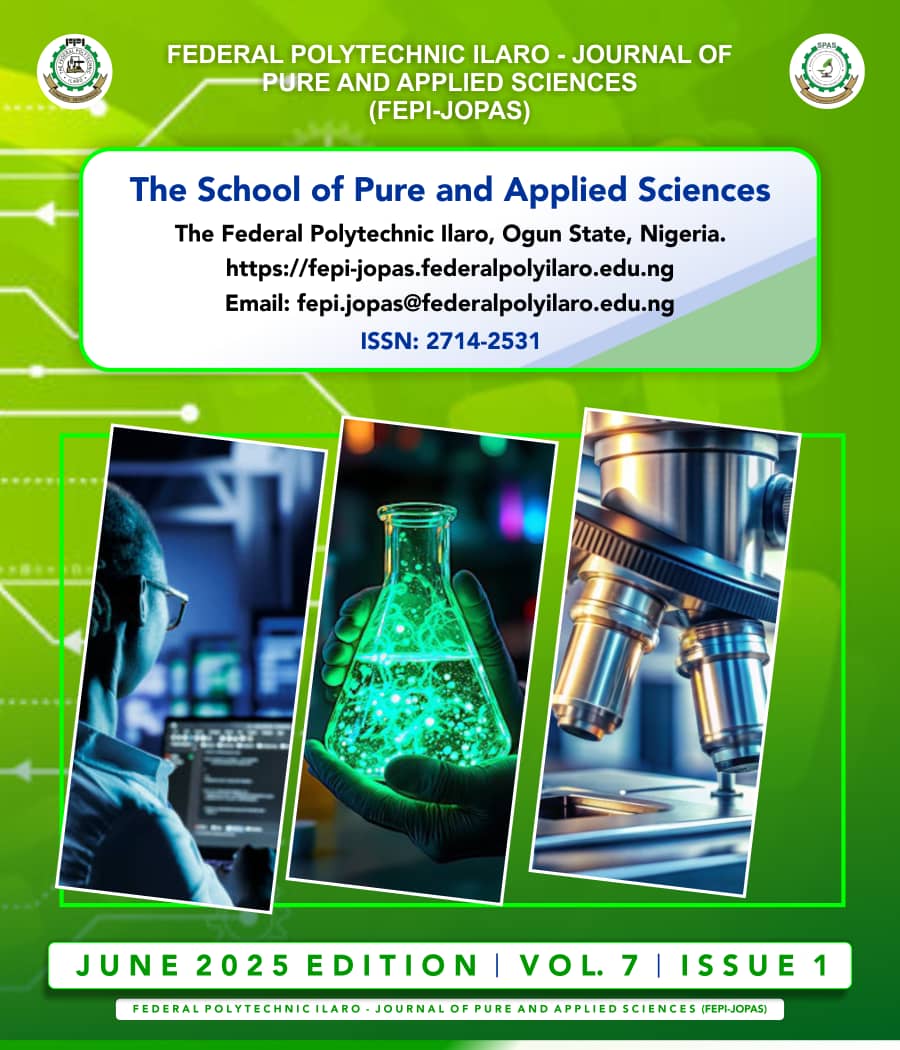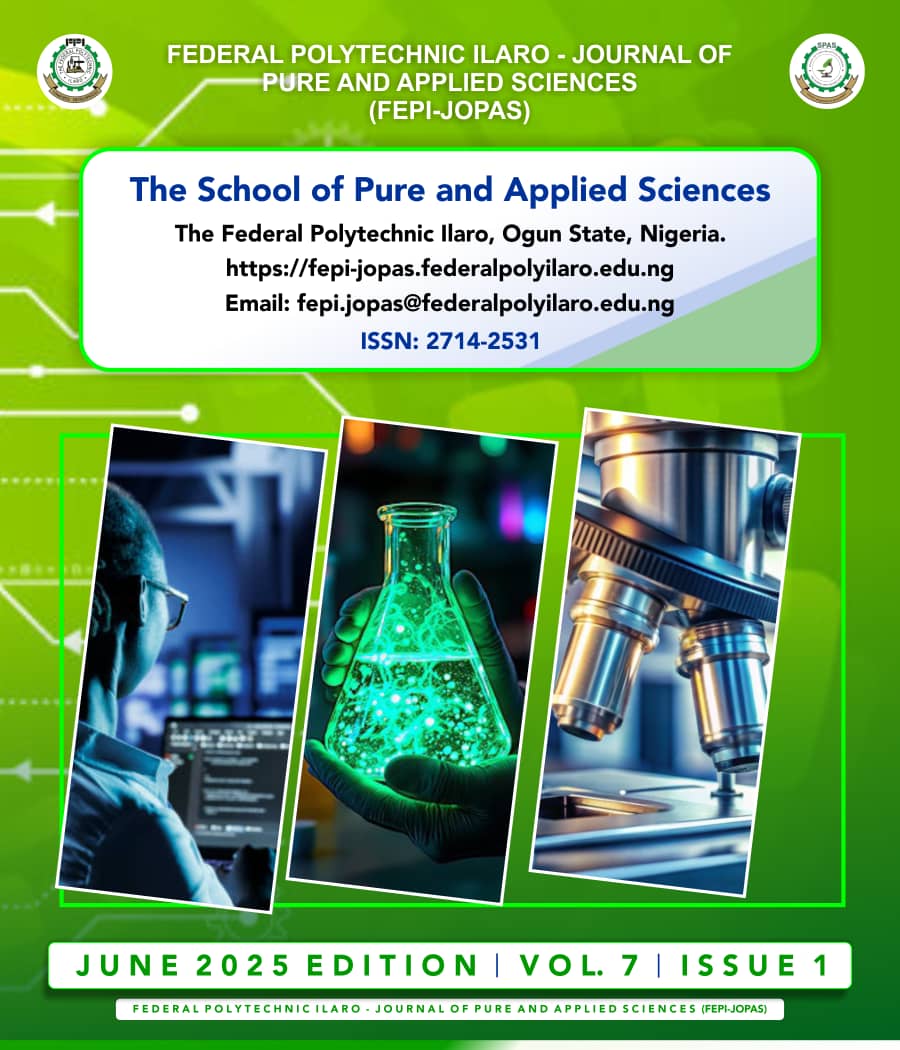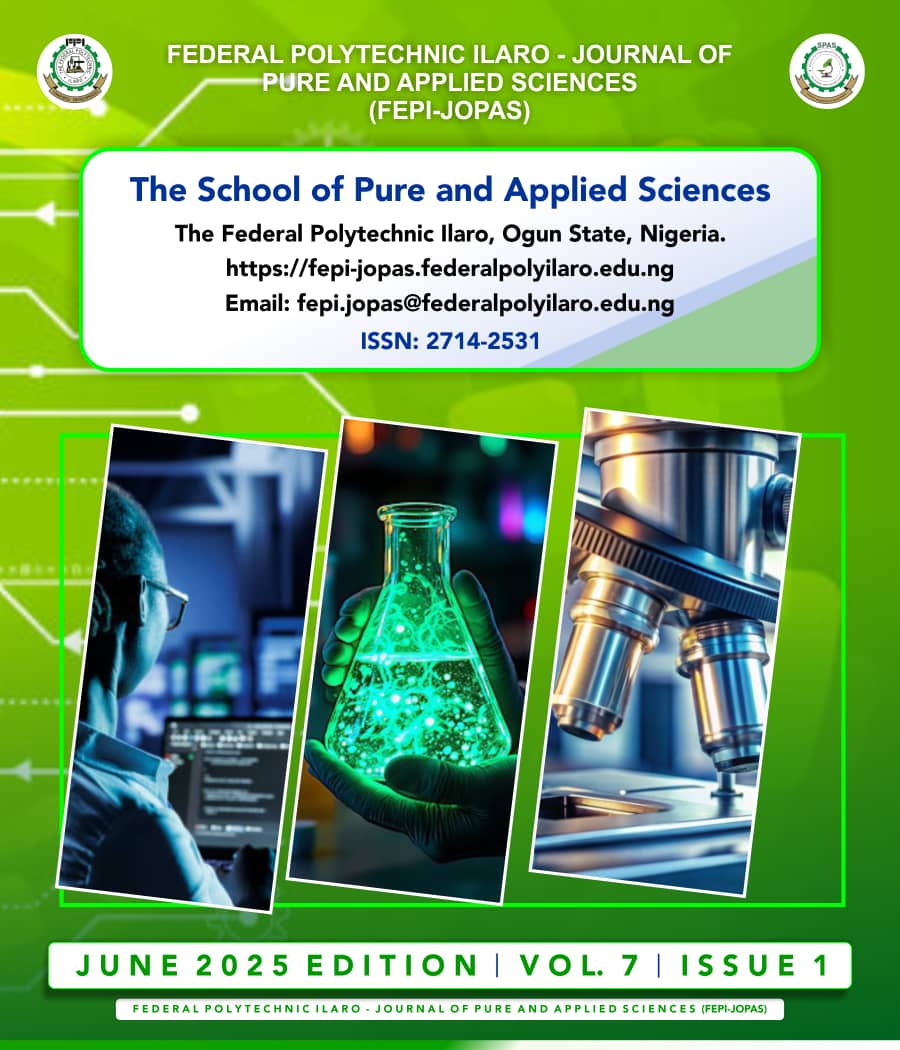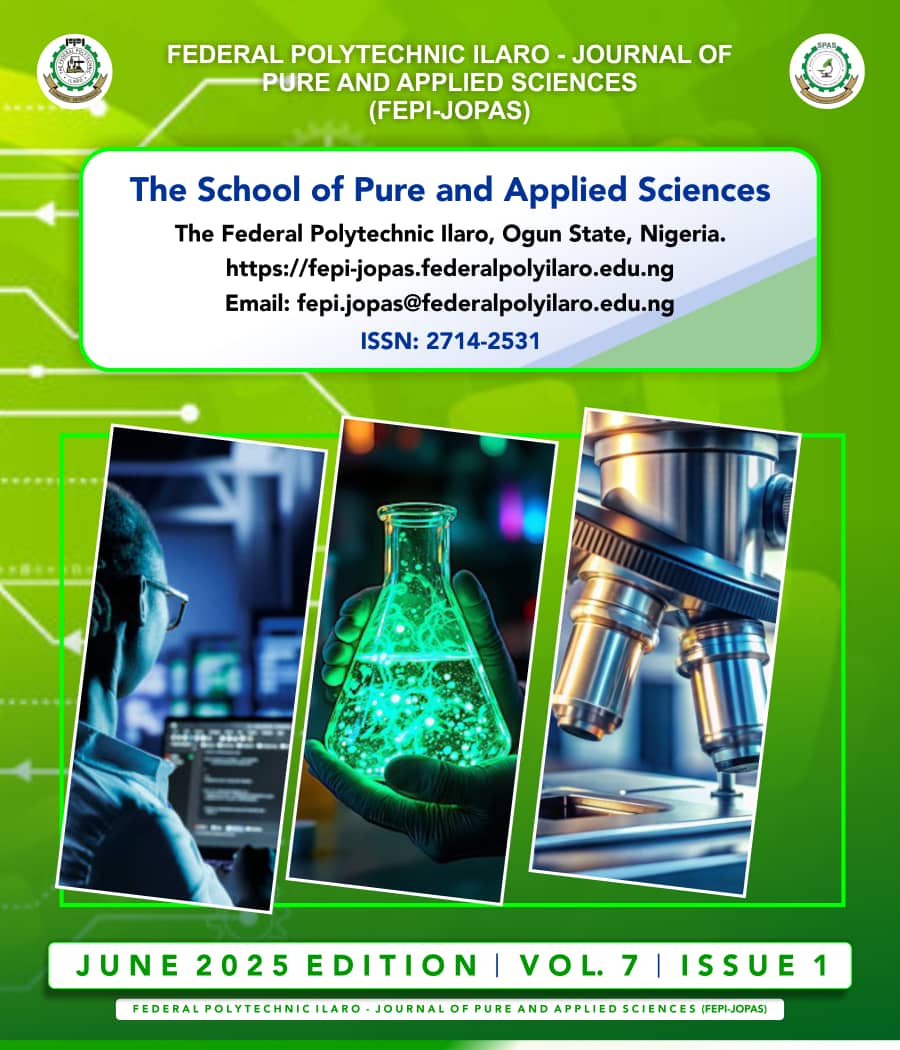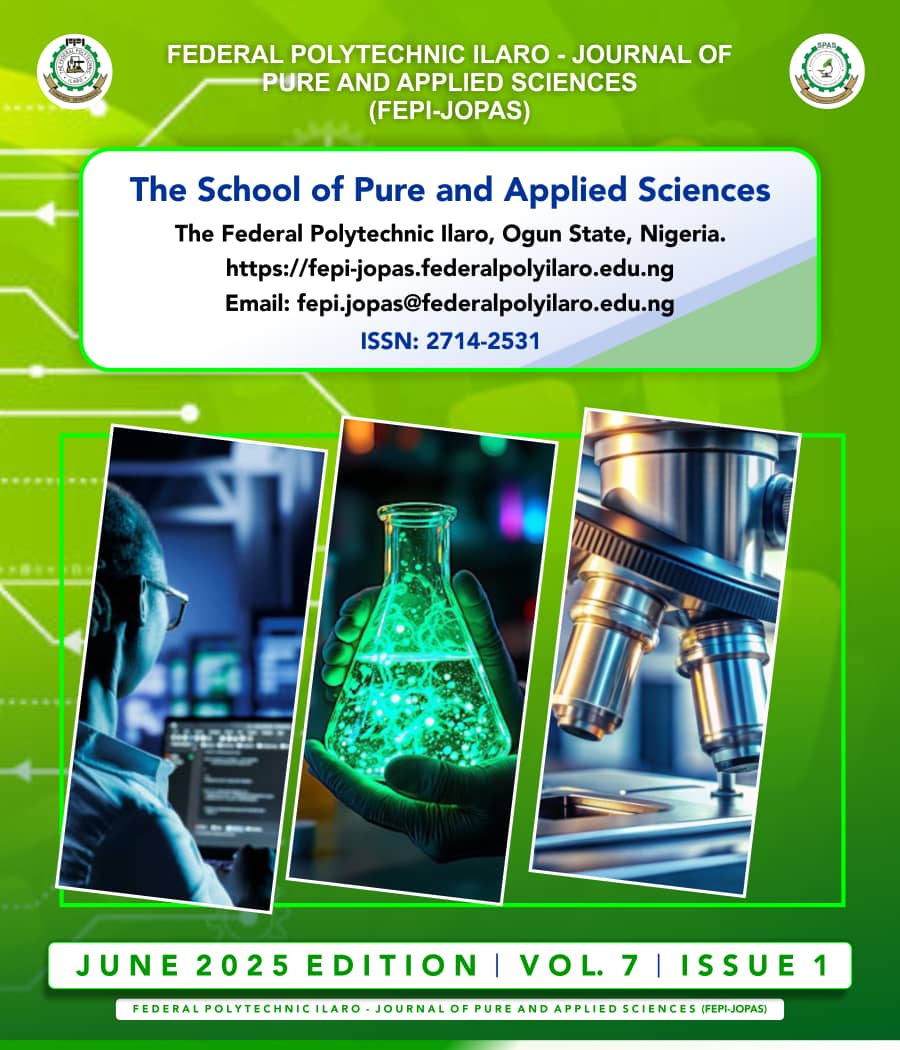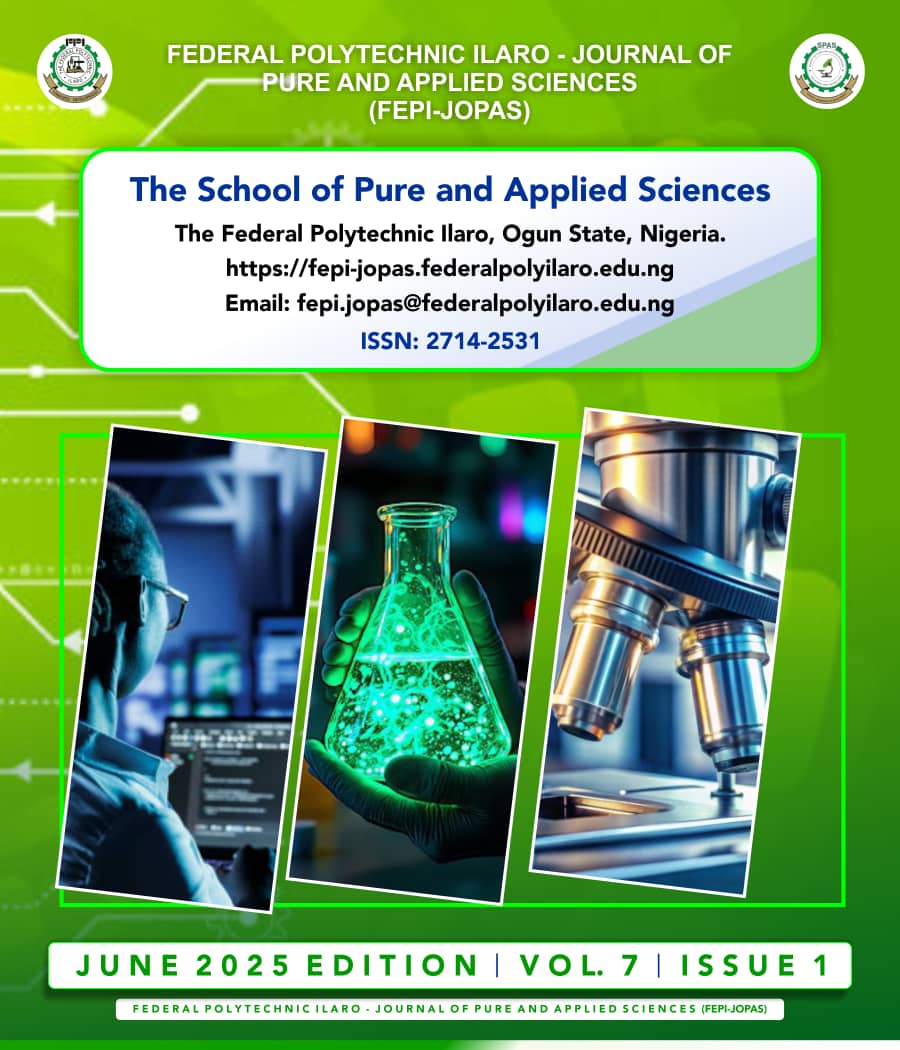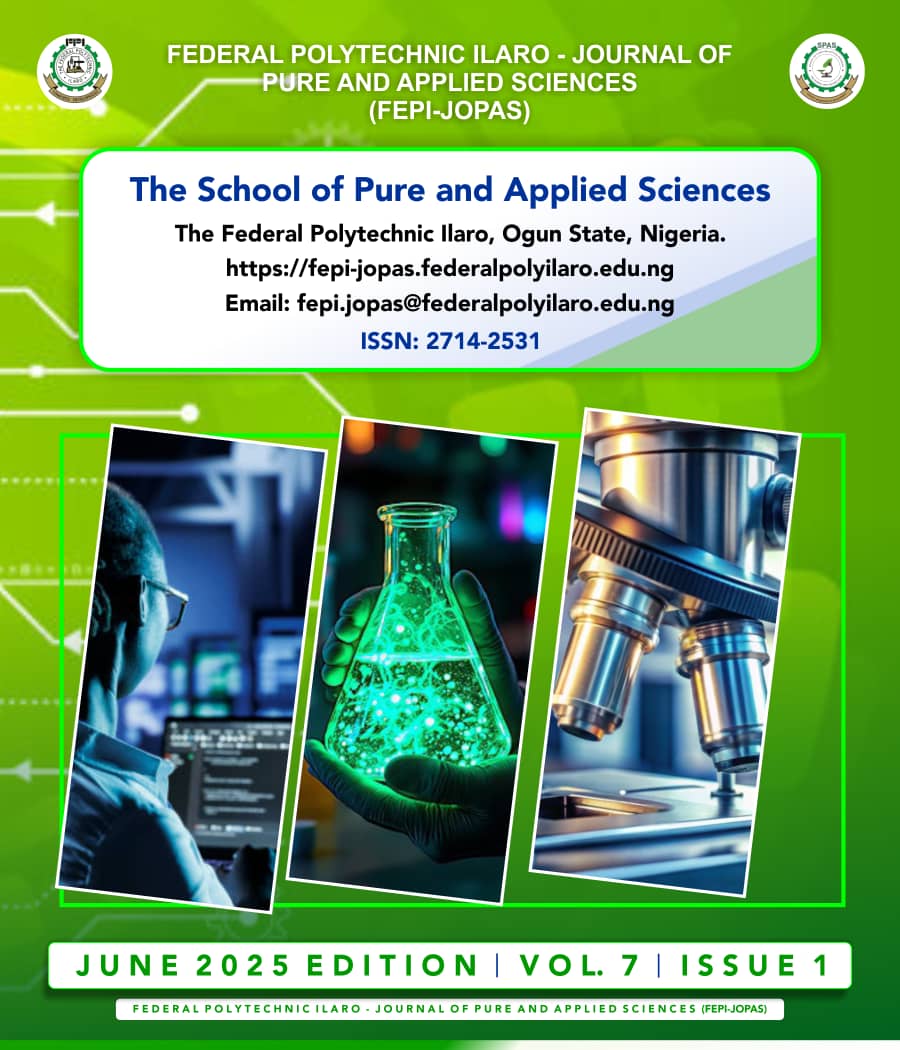Vol. 7 No. 1 (2025): THE FEDERAL POLYTECHNIC ILARO JOURNAL OF PURE AND APPLIED SCIENCES VOLUME 7 ISSUE 1

FOREWORD
With great pleasure and anticipation, I welcome our readers to Volume 7, Issue 1 of the Federal Polytechnic Ilaro - Journal of Pure and Applied Sciences (FEPI-JOPAS). This edition continues our tradition of publishing high-quality, interdisciplinary research that addresses critical issues across science, technology, health, and socio-economic development. The eight articles featured in this issue exemplify the journal’s commitment to relevance, innovation, and academic rigour. They reflect a blend of empirical research, technological advancement, and strategic analysis to solve real-world problems, particularly within the Nigerian context and globally.
Alawore and Laure present a timely and impactful study titled "Leveraging Digital Marketplaces to Enhance the Contribution of Local Artisans and Craftsmen to Nigeria's Economic Diversification", offering a valuable framework for integrating traditional skills into the modern economy. Similarly, Ojenike and Badru tackle a pressing issue in their article "Addressing Gender Inequalities in TVET: Promoting Participation and Empowerment for Women", advocating for inclusive technical and vocational education as a catalyst for empowerment and national development.
From the domain of soil science and environmental modelling, Olaleye et al. contributes to "Mathematical Modelling of the Moisture Retaining Characteristic of Clay Soil Over Some Other Soil Types", providing insights vital for agriculture and land management. Ojo and Ayodele’s article, "Evaluating the Predictive Power of Random Forest Regression on Economic Growth", demonstrates the application of advanced machine learning tools to economic forecasting, with strong implications for policy and planning.
In the field of computer science and education, Soyemi and Kolawole present "Mobile-based Real-time Lecture Reminder System", an innovative approach to improving academic engagement and time management among students. Meanwhile, Olubena et al. provide critical insights into health informatics through their article "Healthcare Professionals' Perceptions of Artificial Intelligence Integration: A Case Study of Lagos State, Nigeria", which explores the readiness and implications of AI in medical practice.
Equally forward-looking is the article by Ogunseye and Sodeinde, "A Comparative Analysis of CNN and Tesseract OCR on Handwritten Recognition System", which evaluates the efficacy of machine learning models in handwriting recognition—a key area in document digitization and AI applications. Finally, Adeboye et al. deliver a crucial biomedical study titled "Histological Assessment of the Ethanolic Extract of Ficus platyphylla on N-Nitroso-N-Methylurea Induced Toxicity in Female Albino Mice (Mus musculus)", contributing to the growing body of knowledge on plant-based therapeutic interventions.
Together, these contributions reinforce the journal’s role as a platform for multidisciplinary research that bridges theory and practice. I commend all authors for their dedication and scholarship, and I thank our reviewers and editorial team for their unwavering commitment to excellence. We invite our readers—academics, professionals, policymakers, and students alike—to explore the diverse insights offered in this issue. May these studies inform your work, inspire new ideas, and contribute meaningfully to scientific and societal advancement.
I sincerely thank the reviewers, editorial team, and contributors whose dedication has made this publication a reality. Their unwavering commitment has been instrumental in establishing this journal as a respected platform for scholarly work. As we look toward future editions, we shall continue to uphold the highest standards of academic excellence, intellectual curiosity, and the relentless pursuit of knowledge. Thank you for your continued support of the Federal Polytechnic Ilaro - Journal of Pure and Applied Sciences.
I am looking forward to receiving your manuscripts for evaluatio and subsequent publications. This journal is indexed in African Journal Online (AJOL) and can be accessed online at https://www.ajol.info/index.php/fepijopas. You can also visit our website (https://fepi-jopas.federalpolyilaro.edu.ng/) for more information or contact us via e-mail at [email protected]
Thank you and best regards.
Prof. Olayinka O. AJANI
Editor-in-Chief
Federal Polytechnic Ilaro - Journal of Pure and Applied Sciences (FEPI-JOPAS)

